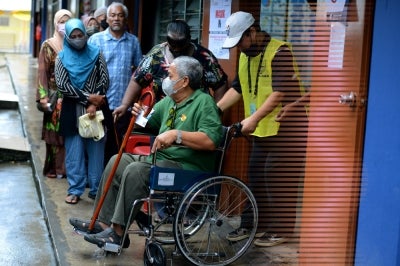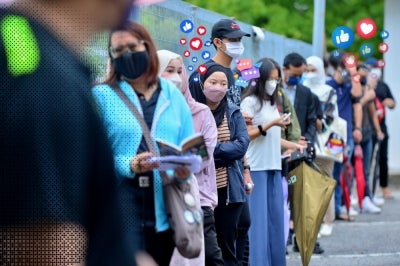Economic woes, cultural fears: PH's non-Malay support in freefall
Analysts pinpoint why non-Malay voters are abandoning PH

SHAH ALAM - Incumbent PKR deputy president Datuk Seri Rafizi Ramli's recent revelation of declining non-Malay voter support for Pakatan Harapan (PH) and the Madani Government has become the talk of the town, igniting widespread discussion.
He reported a drop in Chinese and Indian voter support from roughly 56 and 50 per cent in August 2024 to 31 per cent by April. Malay support, however, saw a slight increase.
The Pandan MP’s disclosure has raised questions about why previously strong PH supporters among Chinese and Indian voters are losing confidence in the coalition.
Political analysts Professor Wong Chin Huat, Associate Professor Dr Chang Yun Fah and Datuk Dr Sivamurugan Pandian offered insights into the issue.
Chin Huat attributed the decline to political fatigue and voter apathy, not a shift towards Perikatan Nasional (PN).
“Chinese voters seem less motivated to turn out, while Indian voters feel sidelined by the government they once supported.
“There is disappointment that parties like DAP and PKR, which historically championed minority rights, have grown silent since entering government," he said.
He pointed to two main causes of dissatisfaction: perceived unfair handling of racial and religious issues and doubts about the government’s commitment to fighting corruption under PH and Prime Minister Datuk Seri Anwar Ibrahim.
“Cases such as the KK Mart bombing and incidents of religious insult have been seen as biased in enforcement,” he added.
In a related matter, Yun Fah clarified that Chinese voter support was waning due to concerns over their cultural and educational rights.
He also said the community views the Madani Government’s performance as increasingly inefficient, especially in dealing with bureaucracy, corruption and economic management.
“Despite economic challenges like new taxes, subsidy cuts and rising prices—issues felt globally—Chinese voters prefer stability.
"They are unlikely to completely reject PH as long as their cultural and educational interests are protected,” he said.
Yun Fah is confident that if a general election were held now, Chinese voters would not dramatically withdraw support from PH, giving the government about two years to improve its standing among this group.
Meanwhile, Professor Sivamurugan stressed that voters judge the government by tangible results rather than rhetoric.
“After 26 months in power, the public expects real change. Issues like inflation, job availability and tax policies directly influence voter sentiment,” he said.
He urged the government to reach all segments of society, including youth and undecided voters.
“If these 26 per cent of fence-sitters are not addressed, they could decide the next general election,” he warned.
Download Sinar Daily application.Click Here!














